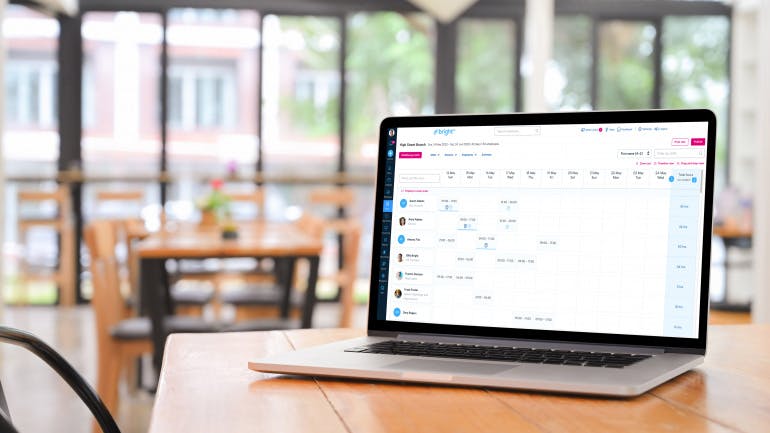First published on Friday, July 2, 2021
Last updated on Tuesday, October 15, 2024
As an employer, you should know where your staff are and when they’re working. Whether it’s people working from home, in the workplace, or elsewhere, you’re required to keep accurate records of working hours.
Keeping track can be even more difficult when your workers drive for a living or regularly travel during the workday.
If you have a fleet of company vehicles, you might consider adding business vehicle tracking. However, there are many laws to keep in mind before installing any sort of GPS device.
In this guide, we’ll cover vehicle trackers and the law around using them for work.
What is a Vehicle Tracking System?
A vehicle tracking system uses GPS location data to keep track of a car or other vehicle.
People use these systems to help recover their car in the event it’s been stolen. Some businesses use similar technology for fleet tracking, routing, and security.
The Benefits of a Vehicle Tracking System
You’ll want to know why before you install trackers on your company cars. There are many benefits to using vehicle tracking . They are:
- Better visibility of workers in the field.
- Enhanced safety and security.
- Improved time management.
Clocking in and out at work is law in the UK. The Working Time Regulations 1998 limits the number of hours that workers can work each week , unless the employee opts out. To monitor this, employers must keep records to adequately show your people’s working hours.
Vehicle tracking provides better visibility of your staff’s workday and ensures you comply with the UK law on timesheets.
Is it Legal for an Employer to Track an Employee Using GPS in the UK?
Before you install GPS systems in your company cars, you need to be aware of vehicle tracking laws in the UK.
There are no specific company vehicle tracking laws. But as these trackers gather data on your workers, you need to be aware of legislation surrounding the Data Protection Act 1998 and the Human Rights Act.
As the information will be linked to a specific person, this comes under General Data Protection Regulation (GDPR).
Under GDPR, data must be:
- Processed fairly and lawfully.
- Obtained for specified and lawful purposes.
- Adequate, relevant, and not excessive.
- Accurate and up to date.
- Not be kept for longer than necessary.
- Processed in accordance with the “data subject’s” rights.
- Securely kept.
- Not be transferred to any other country without adequate protection in place.
It’s legal to track a worker’s location as long as you abide by these rules.
When implementing vehicle tracking, employee rights must also be taken seriously.
Your workers must be told that you’re tracking their location, and consent to you tracking them.
Additionally, under GPS tracking laws in the UK, you can only track their location during their working hours.
Creating a vehicle tracking policy is the best way to make sure your staff are aware of what information you are gathering and how it will be used.
This will also protect you as an employer, as the signed policy document protects you from claims that workers didn’t know their data was being tracked.
Can a Vehicle Tracker be Used in a Disciplinary?
In some cases, you could use data from a vehicle tracker to help you investigate potential misuse by a member of staff.
There are limits of what you can do with data from a vehicle tracker. GDPR states that you can only gather data for a specified purpose.
Providing you have a clear vehicle tracking policy in place, you can use data to review employer performance.
However, you aren’t allowed to track employees outside of their working hours, so if the potential misuse involves use of the vehicle in their own time, it becomes less clear legally.
Get help with business vehicle tracking today with BrightHR
In the UK, you’re required to keep detailed records of your staff’s working hours. This can be difficult for workers that are on the move all day.
Vehicle tracking helps to give you clarity on where your staff are and when they’re working. However, there are lots of things to consider when tracking a worker’s GPS data. And getting it wrong could be a costly breach of their rights.
With the Blip clocking in app by BrightHR, you can keep track of working hours and locations for all of your staff in one handy dashboard. Book in a free demo today to see just how easy it is to manage HR with our app. Give us a call on 0800 783 2806.










